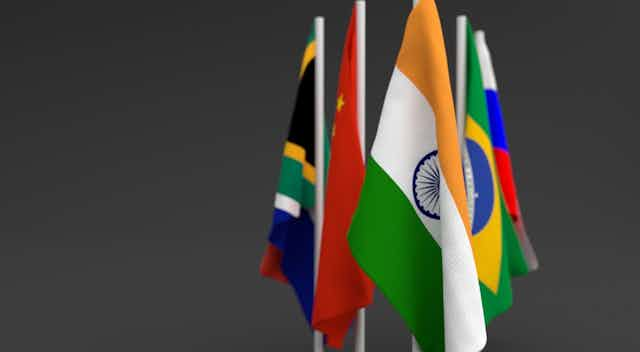The 10th BRICS summit to be hosted by South Africa is going to be closely watched. It comes at a time when extraordinary global political and economic challenges are facing the world.
The BRICS bloc is made up of 5 of the leading countries in the global South — Brazil, Russia, India, China and South Africa.
The challenges facing the world range from country specific problems relating to domestic poverty, inequality and unemployment to climate change and a global economic system that is biased in favour of corporate interests, particularly in finance and technology.
One of the most immediate political challenges relate to the changing dynamics in global economic governance. The current global powerhouse, the US, appears intent on starting trade wars with both China and the European Union. Africa can’t avoid being adversely affected by a trade war between these three economic powers, which are its three largest trading partners.
The US is also pulling back from multilateral governance arrangements that it created. For example, it withdrew from the upcoming United Nations (UN) conference on migration and from the UN Human Rights Council. And Washington is effectively paralysing the World Trade Organisation (WTO) by refusing to agree to the appointment of new judges at the WTO Appellate Body.
These developments are creating a volatile and unpredictable situation for all countries. Small players on the global stage, like South Africa and other countries on the continent, face the prospect of becoming collateral damage in the destruction of the current global governance arrangements.
Given all these complex challenges, how should we judge the success of the BRICS Summit?
We can use three tests: is BRICS being strengthened? What benefits will accrue to Africa? And how is the bloc planning to influence global economic governance reform?
BRICS strengthening
One goal of the upcoming summit should be to strengthen the relationship between the BRICS partners.
A concrete way of measuring this will be to look at the number and quality of agreements to emerge out of the summit. A successful summit will result in a range of substantial agreements being reached. The world will be able to scrutinise the outcome in the communique released at the end of the meeting.
It is important to note that the summit is the apex event in a year-long process. During the year various groups of BRICS government officials, civil society groups and technical experts meet to discuss issues of common interest. They have included technical groups such as the BRICS water forum and a committee looking at customs cooperation. Others have involved political matters, such as meetings of foreign affairs ministers and government officials who help guide their leaders to the summit (known as Sherpas).
The participants in these meetings try to reach agreements on issues of mutual interest – such as establishing a BRICS vaccine research centre – or finding ways to collaborate in sectors like tourism. Their job is also to try and resolve differences.
These efforts feed into the work of the summit as the Sherpas prepare the statement of what has been agreed. Details of the agreements that have been struck will be released in a statement at the end of the summit.
BRICS in Africa
Given that the theme for this year’s summit is: “BRICS in Africa: Collaboration for Inclusive Growth and Shared Prosperity in the 4th Industrial Revolution”, it’s reasonable to expect the BRICS summit to produce benefits for Africa.
One area that would be beneficial for the continent would be a signal from the leaders that the BRICS members are willing to commit to funding infrastructure projects on the continent. This is important because Africa is in the process of putting in place an ambitious new Continental Free Trade Agreement. Successful implementation will require constructing infrastructure that can link the continent both internally and with other parts of the world.
BRICS could position itself for a critical role in the funding of these infrastructure projects.
Two obvious vehicles for such funds are the BRICS’s New Development Bank and the funds that China has created to support its One Belt One Road Initiative.
Thus a test for summit success will be whether it generates new financing for sustainable infrastructure in Africa, and the nature of the financing.
Global governance reform
One goal shared by all the BRICS states is reforming global economic governance structures like the World Bank and International Monetary Fund (IMF). The bloc hasn’t been particularly successful in this mission. But this year may be an opportune time to promote reform.
Actions by the US have undermined its leadership position in the world and may have made other countries more open to governance reforms in key international economic organisations. This is particularly relevant for the IMF which is reviewing its quota allocations. A shift would lead to the world body being more responsive to the concerns of its poorer member countries.
There is a longstanding call for the inclusion of a third African chair on the IMF board. It is unconscionable that the 46 sub-Saharan African countries have the lowest level of representation of any region on the IMF board. South Africa should push BRICS to stand behind this call.
The BRICS should also support making the IMF more accountable to countries affected by its operations. This could be done by demanding that the IMF create an independent accountability mechanism. It is currently the only multilateral financial institution without one.
A key benefit of the BRICS is its potential to lead efforts to meaningfully reform the global economic system. It therefore behoves the citizens of BRICS countries to hold their governments accountable for fulfilling this potential.

